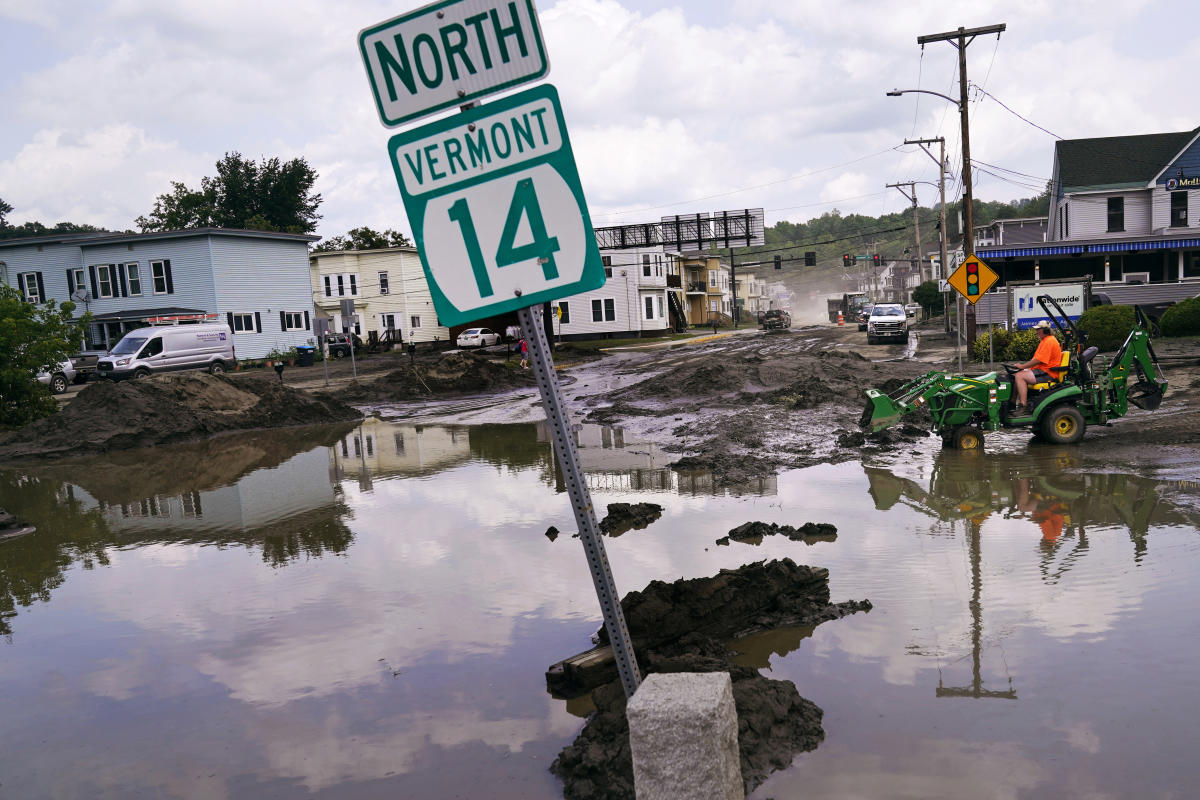Vermont has become the first state to pass a law requiring fossil fuel companies to pay for some of the damage caused by climate change, after the state suffered catastrophic summer flooding and damage from other extreme weather events.
Republican government Phil Scott allowed the bill to become law without his signature on Thursday, saying he is concerned about the cost and outcome of the small state single-handedly taking on “Big Oil” in what will likely be a grueling legal battle. But he acknowledged that he understands that something must be done to address the toll of climate change.
Scot, a moderate Republican in the largely blue state of Vermont, recently announced he is running for re-election to a fifth two-year term. He has been at odds with the Democratic-controlled Legislature, which he has unbalanced, and environmentalists were expected to veto the bill, but he subsequently allowed it to pass.
“Rather than coordinate with other states like New York and California, with far more abundant resources, Vermont – one of the least populated states with the lowest GDP in the country – has decided to recoup the costs associated with climate change on its own ,” says Scott. wrote in a letter to lawmakers. But he said he understands the desire to seek funding to limit the damage caused by climate change, which has hit Vermont “in so many ways.”
Last July’s floods caused by heavy rains inundated Vermont’s capital Montpelier, the nearby town of Barre, and some communities in southern Vermont, ripping through homes and washing out roads around the rural state. Some saw it as the state’s worst natural disaster since a 1927 flood that killed dozens of people and caused widespread destruction. It took months for businesses — from restaurants to retail stores — to rebuild, losing their summer and even fall seasons. Several recently reopened as dozens of homeowners with flood-ravaged homes headed into the cold season.
Under the legislation, the Vermont State Treasurer, in consultation with the Natural Resources Agency, would submit a report by January 15, 2026, on the total costs to Vermonters and the State of greenhouse gas emissions as of January 1, 1995 , until December 31, 2024. The assessment would look at impacts on public health, natural resources, agriculture, economic development, housing and other areas. The state would use federal data to determine the amount of covered greenhouse gas emissions attributed to a fossil fuel company.
It is a polluter-pays model that impacts companies involved in trading or trading fossil fuels or refining crude oil, which can be attributed to the emissions of more than 1 billion tons of greenhouse gases during that period. The money could be used by the state for things like upgrading stormwater drainage systems; upgrading roads, bridges and railways; moving, increasing or adapting sewage treatment plants; and creating energy-efficient weatherization upgrades for public and private buildings. It is modeled after the federal Superfund pollution cleanup program.
“For too long, giant fossil fuel companies have knowingly ignited the fight against climate change without having to do anything to put out the fire,” said Paul Burns, executive director of the Vermont Public Interest Research Group, in a statement. “Finally, perhaps for the first time anywhere, Vermont will hold the companies most responsible for climate-induced floods, fires and heat waves financially liable for their fair share of the damage they cause.”
Maryland, Massachusetts and New York are considering similar measures.
The American Petroleum Institute, the main lobbying group for the oil and gas industry, has said it is deeply concerned that the legislation “retroactively imposes costs and liability on prior activities that were legal, violates equal protection and due process rights by holding companies accountable.” hold for the actions of society as a whole; and is undermined by federal law.” A letter to lawmakers before the bill became law also said the measure does not notify potentially affected businesses of the size of the potential fees.
Vermont lawmakers know the state will face legal challenges, but the governor is concerned about the costs and what it means for other states if Vermont fails.
State Rep. Martin LaLonde, a Democrat and attorney, believes Vermont has a solid legal case. Lawmakers worked closely with many legal scholars in drafting the bill, he said in a statement.
“Most importantly, the stakes are too high — and the costs too high for Vermonters — to release companies that created the mess from their obligation to help clean it up,” he said.
